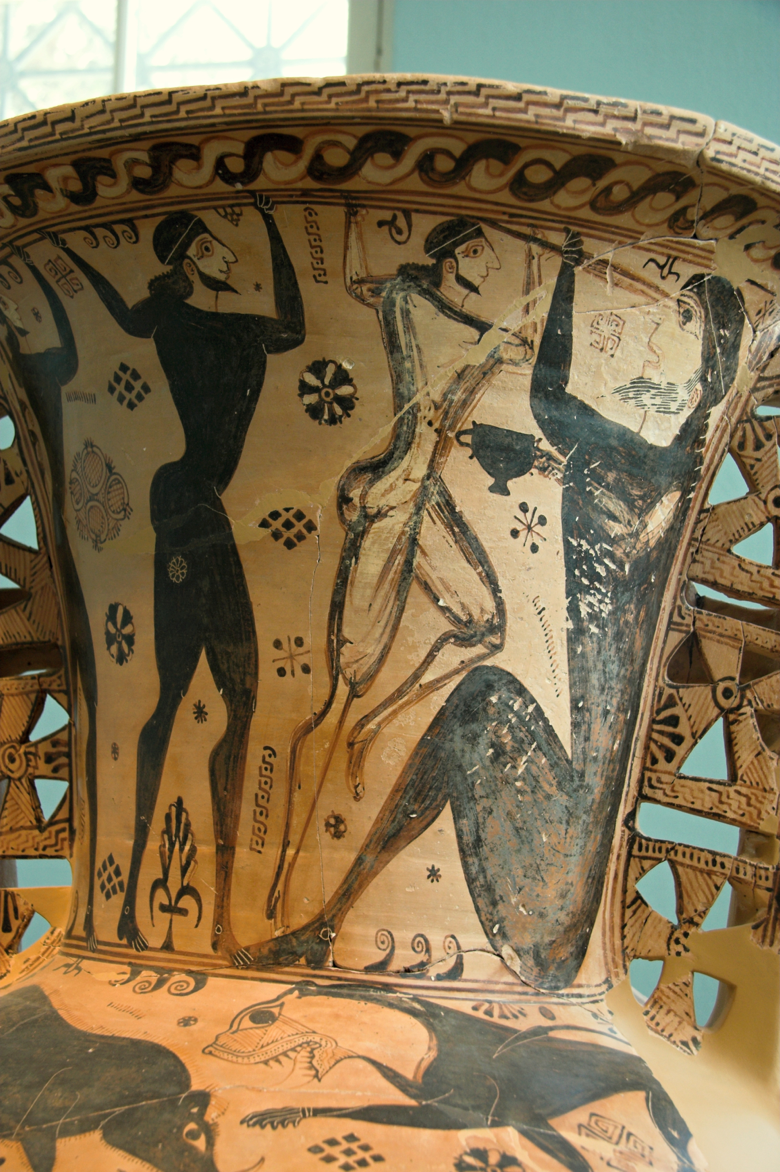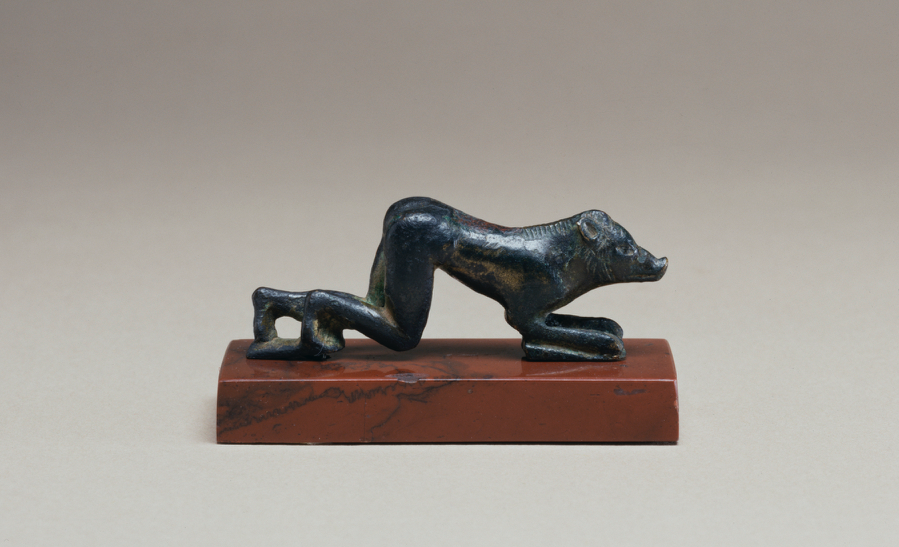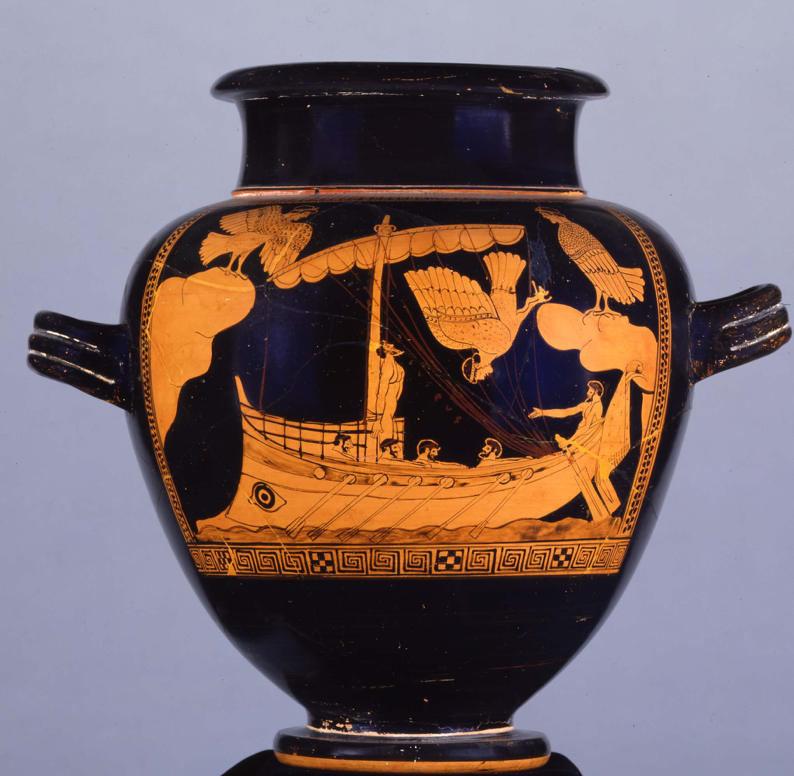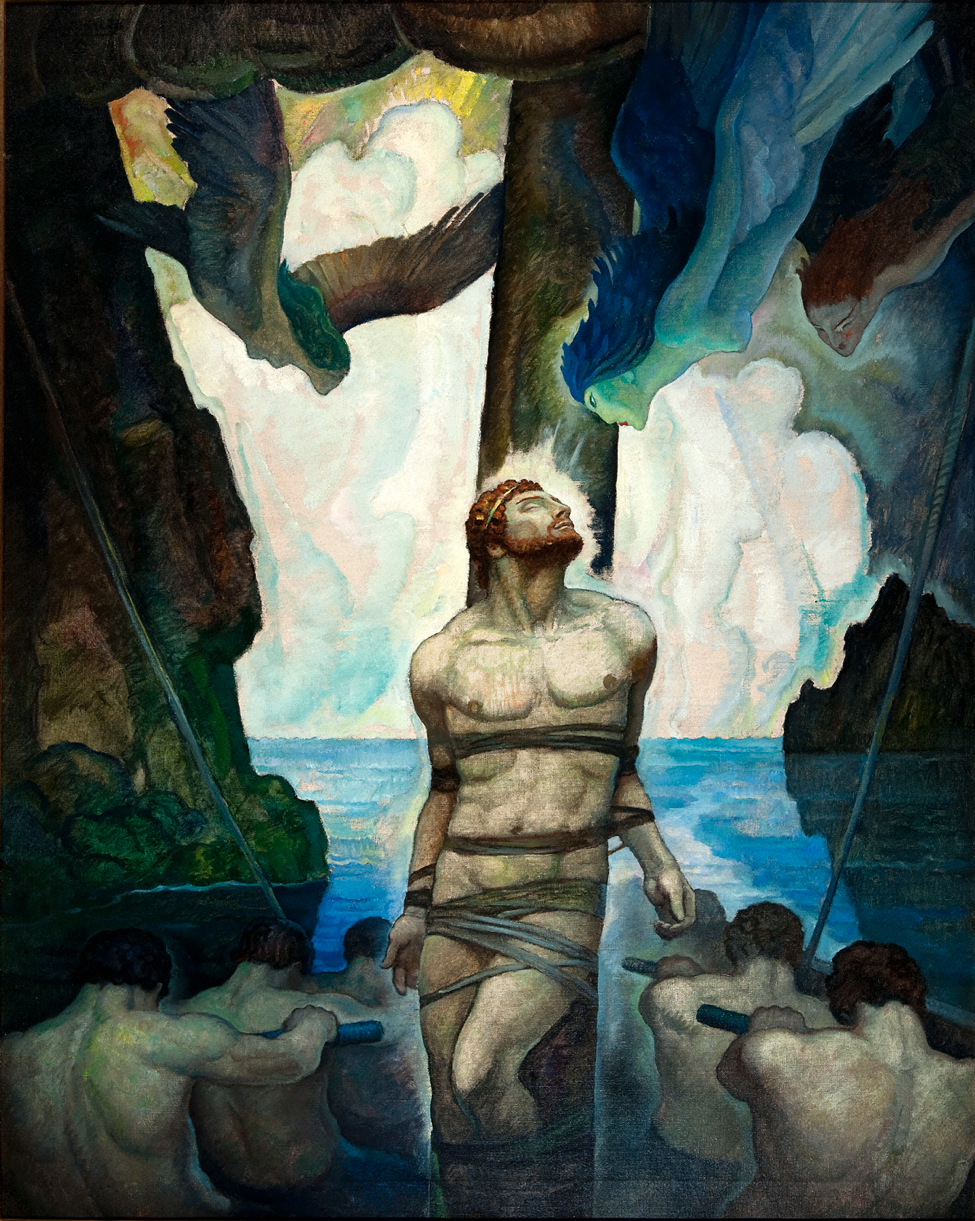The Odyssey – An Introduction

The Odyssey tells the story of the Greek hero Odysseus’ return home from the Trojan War. Although the Odyssey focuses on Odysseus’ story, it also tells about the returns of four other heroes: Nestor, Agamemnon, Menelaus, and the Lesser Ajax. These stories are told piecemeal and in flashbacks, so they are a little more difficult to follow. Furthermore, there are also a few events that happened between the end of the Iliad and the beginning of the Odyssey that are helpful to know.

The Death of Achilles
The first of these events is the death of Achilles, which came at the hands of Paris with the help of Apollo. The Greeks were fighting near the gates of Troy and Paris shot at Achilles with his bow, which Apollo guided to Achilles’ one vulnerable spot, his ankle. This was the only vulnerable spot on Achilles’ body because his mother tried to make him immortal when he was a baby by dipping him in the River Styx. Since she held him by the ankle, the waters of the Styx did not touch that part of him, so he was mortal and vulnerable in that spot.
The Suicide of Ajax
After Achilles’ death, it was decided that his armor should be given to the second-greatest Greek warrior after Achilles. As we know from Book 18 of the Iliad, Achilles had immortal armor, which had been crafted for him by the god Hephaestus to make up for the armor he had lost when Patroclus had worn it into battle (and Hector had taken it after he killed Patroclus). Now that Achilles, the greatest of the Achaeans, was dead, it was agreed that his immortal armor should go to the second greatest warrior. Everyone knew that the second greatest warrior was the Greater Ajax, the son of Telamon. He was huge, he was brave, and he was selfless; he spent all his time protecting the other Achaeans. But Odysseus used his amazing speaking ability to convince Agamemnon and Menelaus (who were judging the contest) that his cleverness made him more valuable than Ajax (who was not known for his wits) and that he, Odysseus, was in fact the second-best Greek warrior. As a result, Odysseus was awarded Achilles’ armor, even though everyone knew in their hearts that Ajax really deserved it. Ajax was so mortified by being passed over for an honor that he felt was rightfully his that he killed himself in shame. And, as we will see when we read the Odyssey, Odysseus later came to deeply regret his “win”.

The Bow of Heracles and the Palladium
Meanwhile, the Trojan War raged on, despite the deaths of both Hector and Achilles. The Greeks learned from Helenus, a son of Priam whom they had captured, that they needed to complete two tasks before they could capture Troy. First of all, they needed Heracles’ bow, and second, they needed to capture the Palladium, a wooden statue of Athena that was kept in Athena’s temple in Troy. The Greeks first set out to acquire Heracles’ bow, which was a difficult task because Heracles had given it to his friend, Philoctetes, before he died. Many years earlier, at the beginning of the Trojan War, the Greeks had abandoned him on a desert island, so he hated the Greeks and did not want to give them Heracles’ bow. But eventually, with the help of Achilles’ son, Neoptolemus, they were able to convince him to give them Heracles’ bow. The entire story, including the reason why the Greeks abandoned Philoctetes in the first place, is told in Sophocles’ play, Philoctetes.
Then the Greeks needed to somehow acquire the Palladium, since Helenus had told them that as long as the Palladium was inside Athena’s temple, the city could not fall. Odysseus and Diomedes snuck into the city in disguise and stole the Palladium, taking it with them to the Greek camp.
The Trojan Horse
Now the only thing standing between the Greeks and victory were the impressive walls of Troy. Odysseus hatched a scheme to get the Greeks inside the city. A giant, hollow wooden horse was constructed and a select group of warriors was placed inside. The rest of the Greeks sailed just out of sight of Troy, waiting for a signal from the city to come back. The Trojans, when they saw that the Greek army had left, assumed that the Greeks had finally admitted defeat and had sailed back home. The Trojans took the horse, which they believed to be a thank-offering to Athena for a safe trip home, inside their city. That night they celebrated the end of the war with an amazing party and then fell into a drunken sleep. While the city slept, the Greek warriors came out of the wooden horse. They quickly went to the gates, opened them, and then lit a fire as a signal to the Greek fleet that they were ready for reinforcements. The Greek fleet returned, the warriors inside the city opened the gates, and the Greeks burned and pillaged the city, razing it to the ground.


The Sack of Troy and the Returns
The Greeks were savage in their sack of the city and their actions had lasting consequences on their journeys home. The Lesser Ajax (the son of Oïleus, called “Lesser” to distinguish him from the more famous warrior named Ajax) raped Cassandra in Athena’s temple. As you can imagine, Athena was furious, and she found a way to punish him so that he did not survive [see Athena]. Neoptolemus killed Priam at the altar of Zeus, but when he arrived home he was killed by Orestes in a quarrel over Hermione, the daughter of Helen and Menelaus. Menelaus had promised Hermione to Neoptolemus but then later gave her to his nephew, Orestes. Agamemnon arrived home quickly and without incident, but as soon as he arrived he was killed at a banquet by his wife’s lover, Aegisthus. Menelaus was blown off course to Egypt, and he spent seven years in Egypt before finally arriving home to Sparta. Odysseus was blown around the entire Mediterranean Sea and was not able to return home until ten years after the Trojan War was over (as we will see in the Odyssey). Only one important Greek warrior made it home quickly with no negative consequences: Nestor. We will discuss why Nestor alone had no difficulties getting home when we read the Odyssey.

